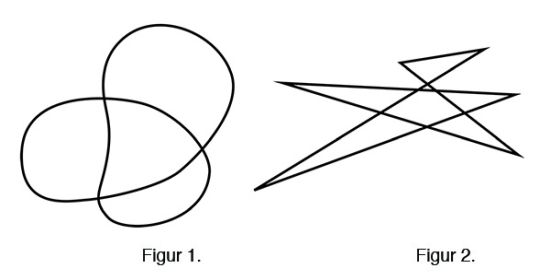
What’s In a Name?

What have the Romans ever done for us? Well apart from the alphabet, the annual calendar and an assortment of essential infrastructure, they also bequeathed us a legacy of some pretty boss maxims – think 'Carpe Deim' (seize the day), Quid Pro Quo (something for something), and the immortal words of Julius César 'Veni, Vidi, Vici' (I came, I saw, I conquered). However, the focus of this article will be on a maxim of the lesser known variety – Nomen est omen – meaning ‘Name is destiny’. The premise of this pithy aphorism being that the names we are given at birth carry all sorts of subconscious baggage that play a role in shaping who we become.
Back in the 1920s a German psychologist named Wolfgang Kohler developed a simple experiment to test how the names we confer on things come loaded with all manner of subtle indicators. He took two imaginary names (‘Maluma’ and ‘Takete’) and asked a group of respondents to pair the words with the two shapes below. The majority of participants in the study choose the word 'Takete' for the angular shape shown on the right, whereas the word “Maluma” was deemed a better fit for the rounded shape displayed on the left. The results have subsequently been replicated many times over and even amongst individuals from cultures without any written language.

This principle of non-arbitrary labelling has interesting implications for the world of branding and product alignment. Consider for example the soft, gentle, approachable, connotations of ‘Maluma’ brand names such as Google and Oracle. Contrast this with the sharp, focused, straightforward ‘Takete’ connotations of companies such as Netflix and Starbucks. This logic can also be extended into the world of celebrity where, for a variety of reasons, pseudonyms are a common occurrence. Lizzie Grant (Takete) opted to use Lana Del Rey (Maluma) as her stage name whilst the little known Eric Marlon Bishop (Maluma) chose Jamie Foxx (Takete) as his stage name.
Psychologists have also discovered some interesting ways in which our linguistic associations influence how we think and behave. For example, people tend to hold irrational biases as to how long it will take a bird to migrate between the same two points (They expect it to take longer to fly north than to fly south). Similarly, researchers at New York University’s Stern School of Business (Alter & Oppenheimer, 2006) investigated the performance of hundreds of stocks immediately after they were listed on the financial markets between 1990 and 2004. They revealed that companies with simpler names that were easier to pronounce received a greater post-release bump than did companies with complex names. The effect was found to be strongest during the first few days of trading when investors had little information about the stock’s fundamentals and thus were more likely to be swayed by extraneous factors.
Given these findings it seems reasonable to conclude that our words do play a significant role in shaping our perceptions. Labels are thus unlikely to ever be truly neutral or arbitrary. While the effects of linguistic associations can be subtle, brands should ignore this quirk of social science at their peril.













